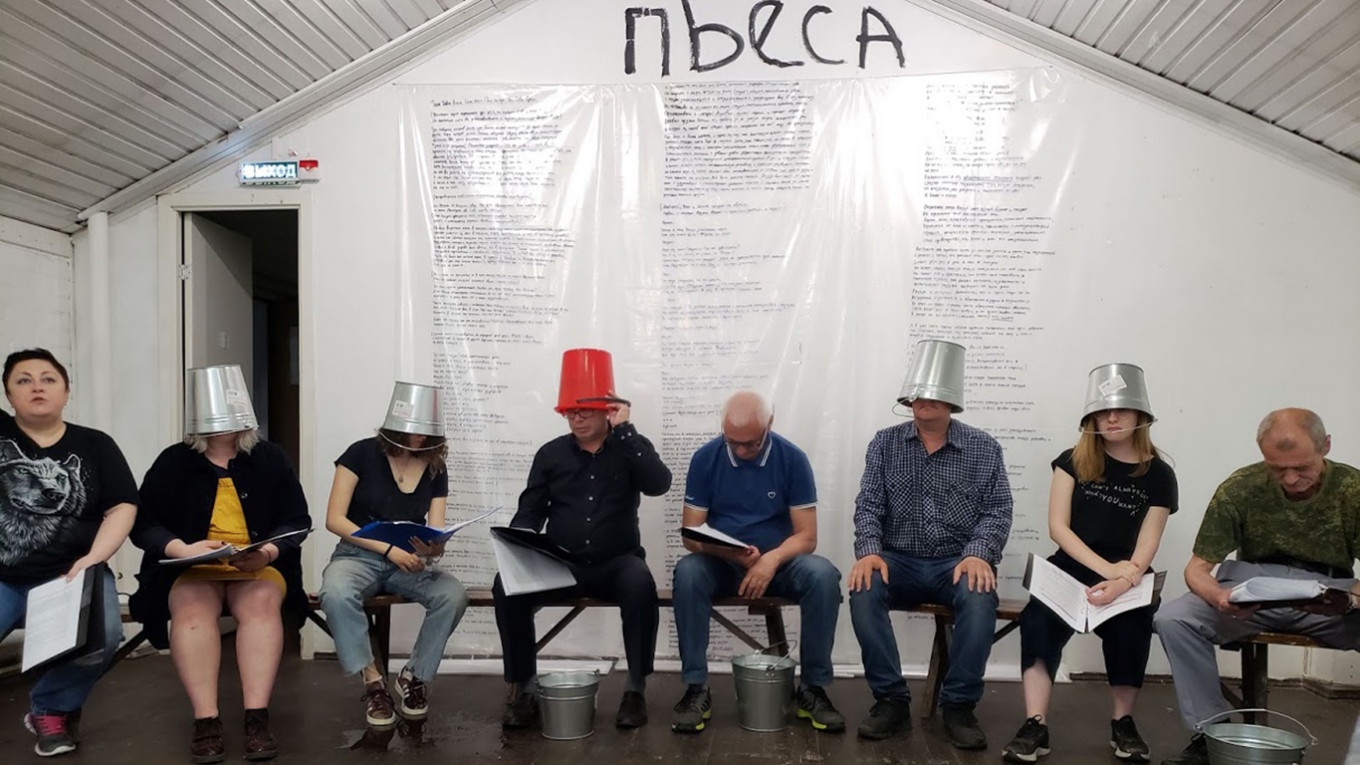
The Zverev Center for Contemporary Art, a gallery which occupies half of a small wooden cabin nestled into a shady corner of a park, is generally locked, but a sign on the door gives a number for the determined to call for access to the latest exhibition. Last month, this space was taken over by a small cohort of former Russian inmates and a 23-year-old American named Ariella Katz. They were there to perform a play, the final piece of a nearly year-long writing workshop for those with “prison experience” called Freedom Words.
Homecoming
Katz, a native of Brookline, Massachusetts, originally started the workshop in 2017, during the summer before her senior year at the University of Chicago. She was inspired by similar workshops in the United States, her strong interest in human rights, and her previous work defending political prisoners in Russia. This first stint resulted in a book called “Does the Sun Have an Off-Switch,” which was published the next year.
Back in Chicago, she felt there was work still to be done in Moscow, and she convinced the Fulbright program to grant her a scholarship to continue the workshop. The members of Freedom Words were thrilled that she would be returning.
Outreach
The play is based on the poems, stories and letters which came out of the workshop. This material opens a window into the lives of the workshop’s participants, and, more broadly, what it means to be free and to have that freedom taken away. Much of it was in the form of correspondence with current inmates in the Black Dolphin Prison in Orenburg, where many inmates are serving life sentences, and with inmates in Stateville Prison, in Illinois.
Katz learned about a similar program at Stateville through a graduate student at the University of Chicago, who teaches Art History to prisoners. Their project happened to be called Freedom Dreams, which Katz noted “seemed like not a coincidence.” She started learning about their project, and a collaboration formed between the two programs. Both the members of Freedom Words and inmates at Stateville were thrilled to be able to communicate. When they received letters from their American penpals, Katz recalled, “people in Freedom Words were saying, ‘Hey, that’s exactly my experience!’”
The Play
Behind the “stage” was a giant sheet of plastic with the word “Play” written in black paint at the top. Underneath was the entire text of the play. There is no linear narrative, but rather snippets of poetry and correspondence which speak to the experiences of prisoners. Aside from the poetry, former inmates dump buckets of water on themselves, and play a game of word association, which members of the audience are invited to join.
“When you come to the play,” Katz said, “you see not these abstract people, who wrote some sort of text. But these are the people who have gone through this, and they’re facing you and talking to you.” It would be interesting enough to see former inmates talk about their stories in a conventional format, but Katz, using actors with no formal training, has created a work of experimental theater, and the participants were fully engaged in the idea.
Moving Forward
The work also extends beyond the stage. After the performance, the audience was invited to write a letter to inmates in Black Dolphin and Stateville. “I think it’s really cool,” Maria Plavinskaya, who curated the exhibition, said, “because many of the authors don’t have the opportunity to get feedback, and it’s important for them that their texts are read, and that their work is being presented at this exhibition.”
“It can really change the lives of these people,” Katz added.
Now that her Fulbright program has ended, however, Katz is moving back to the United States to focus on legal advocacy work there. “It’s hard to leave,” she said. “I’m hoping this sense of family will stay. People in the workshop already have ideas about how they want to take it forward.”






